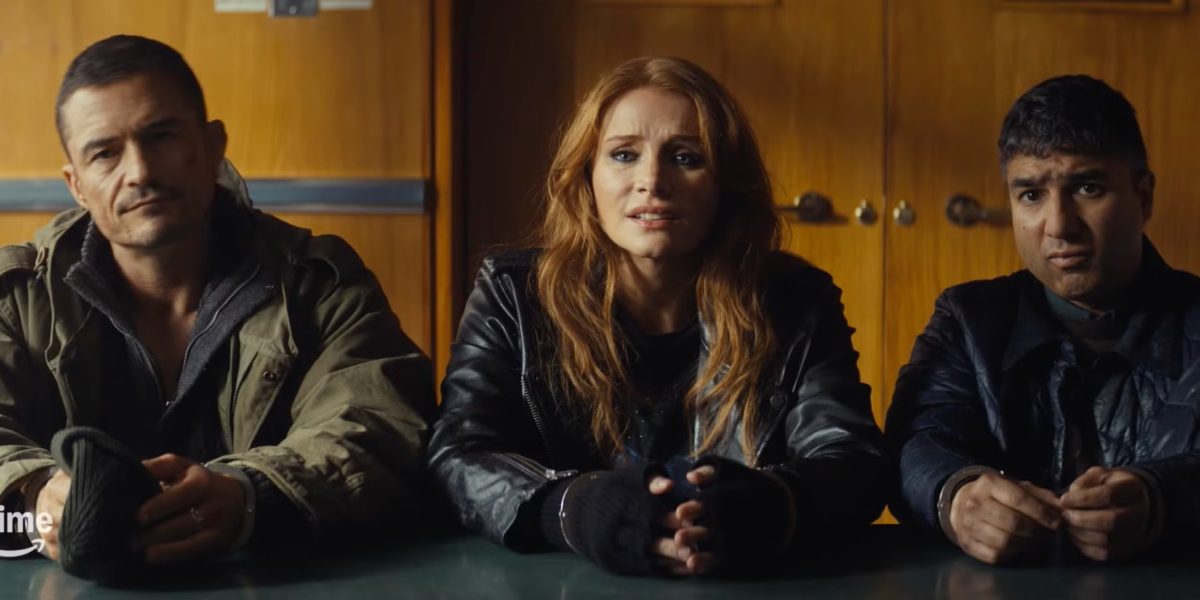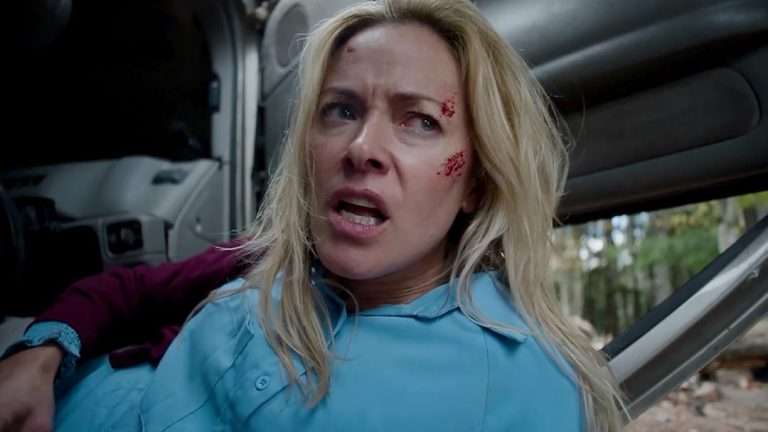Tom Kingsley’s “Deep Cover” (2025) offers Bryce Dallas Howard something that Matthew Vaughn’s “Argylle” couldn’t: an investigative thriller plot that actually makes sense. Kingsley’s film has such a watertight script that no moment feels dull or dragged. It knows how to use every character without resorting to convoluted twists for the sake of cheap thrills. It also understands the strengths of its central cast to make the most of their skills. Take Nick Mohammed, for example. He is one of the breakout stars of “Ted Lasso,” who portrayed Nathan Shelly as an eternally petrified but well-meaning man, whose vulnerability ends up being his strength.
Kingsley’s film casts Mohammed in a fairly similar role, who is tired of being treated like garbage and feeling like a lost cause. It also casts Howard in a role that makes use of her casual liveliness, which helps underline her character’s internal pathos. Then, with Orlando Bloom, it values his dramatic chops and uses them cleverly for a character who is full of himself, making him prone to cause a scene to prove his mettle. This inherent irony of Bloom’s character adds to the comical palette in this film that keeps introducing similar connections between its characters, actors, and genre elements. That’s also what puts its three central characters in its madcap adventure.
“Deep Cover” primarily follows three down-on-luck Londoners who get pulled into the city’s criminal underworld as undercover agents because they are all desperate to prove themselves. Whether a comedian, an actor, or a corporate employee, they are all struggling in their personal and professional lives. These struggles bring them together in Kat’s (Bryce Dallas Howard) improv-acting class. Kat is a comedian who has been trying her luck in the entertainment industry for over a decade. Although talented, she doesn’t have anything to show for her worth. So, she feels rejected and left behind by anyone her age.
Kat hasn’t gotten her big break yet, much like Marlon (Orlando Bloom), who hasn’t found his footing as an actor. However, unlike Kat, it’s not because of a stroke of bad luck but due to his holier-than-thou attitude. He reveres the likes of Daniel Day-Lewis, Robert De Niro, and Marlon Brando, deluding himself into thinking he can achieve the success they did by simply being self-important.
However, he doesn’t take into account the constraints of his time, which doesn’t concern itself with the heavy commitment of method acting. Unlike Marlon, Hugh (Nick Mohammed) doesn’t suffer because of his high self-esteem but the lack of it. He is often the butt of the joke, being ridiculed or ignored in his office, which drains his confidence.

Despite their clear differences, they all hope to escape their dull and dreadful lives. Also, they all have a skewed idea of their reality that is far different than their actual lives. This dissonance leads them to most of their turmoil and, coincidentally, attracts them to improv-acting that works on a yes-and discipline. You say yes to anything thrown at you by your improv partner and build an imaginary scenario. It’s a way to think by the beat, toss away casual inhibitions, and accept every possibility with an open heart. It may not make sense at the moment, but it can be a liberating experience.
“Deep Cover” captures the inherent appeal of this out-of-body experience as it shows how playing a part can bring you closer to being that part. It’s also something that Nathan Fielder captures in “The Rehearsal.” In the second season, Fielder ends up being a pilot while trying to understand how pilots think, act, and speak to help them navigate through their emotional struggles. Kingsley’s film becomes a similarly cathartic experience for its characters since it understands the value of their artistic experiment. It works on a similar underlying principle: all it takes is to believe in your bluff to make others buy it.
Although not a contemplation about the healing nature of art, it shows how art can help one grow and thrive as a person. Despite these cerebral undertones, “Deep Cover” is not daunting or self-serious. In fact, it is a wildly entertaining romp that uses every moment to churn out the most humor, suspense, and mystery. It is sharp and precise with its editing choices that introduce its emotional layers without overstaying its welcome. Although devoid of whip pans or tracking shots, it feels as kinetic as Edgar Wright’s films, which are similarly razor-sharp in their overall approach.
As a crime comedy, “Deep Cover” includes many self-referential punchlines while being a compelling genre exercise. Think of “The Nice Guys,” “Game Night,” or “Kiss Kiss Bang Bang.” Kingsley’s film falls in a similar lane as it balances its humor with exciting set pieces. It is a similarly charming mid-budget affair that lands almost every single note. More importantly, it is a comedy with a lot of heart that uses its characters’ mistakes for its humor but doesn’t belittle them. It knows how to strike a balance between subtle drama and heightened humor, seamlessly transitioning to and fro between stimulating and heartbreaking moments, while making sure no moment feels wasted.
Read More: The 25 Best British Comedies of All Time
Editor’s note: Deep Cover premiered at the 2025 Tribeca Film Festival and will stream on Prime Video from June 12th




![Embrace of the Serpent [2015] : Wildness Personified](https://79468c92.delivery.rocketcdn.me/wp-content/uploads/2017/02/3872-768x461.jpg)
![Udanpirappe [2021] Review – Jyothika’s 50th film is a disappointment from start to finish](https://79468c92.delivery.rocketcdn.me/wp-content/uploads/2021/10/Udanpirappe-Movie-Review-768x512.jpg)
![The Legend of La Llorona [2022] Review: An Unimpressive Retelling of the Mexican Myth of “The Weeping Woman”](https://79468c92.delivery.rocketcdn.me/wp-content/uploads/2022/01/THE-LEGEND-OF-LA-LLORONA-1-768x512.jpg)

![Time of Moulting [2020]: ‘Nightstream’ Review – A slow burn mood piece too prescient for its own good.](https://79468c92.delivery.rocketcdn.me/wp-content/uploads/2020/10/Time-of-Moulting-highonfilms-768x432.jpg)